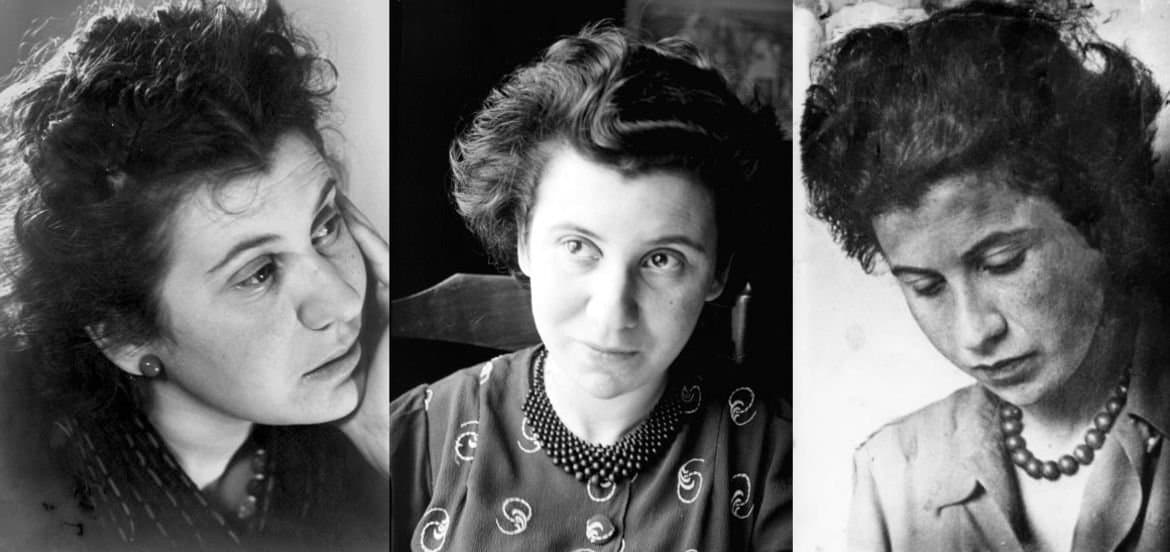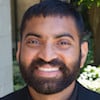“We should be willing to act as a balm for all wounds.”- Etty Hillesum
How do we remember traumatic events of the past? Richard Kearney, a philosophy professor at Boston College, asked this question with specific reference to the Shoah.1 It is a poignant question, especially as we mark International Holocaust Remembrance day.
It was on this day seventy-five years ago that the Red Army entered Auschwitz, finding 7000 prisoners in horrific conditions. Desperate as they were, these scanty 7000 were the fortunate survivors of the 1.3 million who entered Auschwitz, the 6 million Jews who died during the Shoah, and the millions of others targeted by the Nazis including the disabled, homosexuals, and Jehovah’s Witnesses.2 The scale of the carnage and the brutality of evil overwhelm me. Yet, remembering the Shoah seems more relevant than ever. We once again live in a world with rising anti-Semitism, hate speech, and blanket condemnations of various ethnic and religious groups. Given this context, I think that the witness of one particular individual, Etty Hillesum (1914-1943), can help us to better explore the personal dimension of this tragedy and find lessons for our contemporary situation.
In the space of one month last year, while in a personal bout of desolation, I came across Etty’s name in three different situations including a spirituality class and a philosophy textbook. This string of occurrences led me to explore her journals. She started keeping a diary in 1940 after meeting and falling in love with Julius Spier, a psycho-chirologist (think of a combined psychologist and palm reader) with “penetrating eyes and a sensual mouth.”3 It was a relationship chock-full of ambiguities as he was already engaged and she really did not want to marry him. Yet, their mutual yearning resulted in an intense relationship that utterly transformed Etty’s intellectual and spiritual horizons. Spier shared his passion for the Confessions of St. Augustine, the poetry of Rainer Maria Rilke, and gospel stories with Etty who was more than a willing pupil.
Having a secular upbring, she was utterly fascinated by the fact that he prayed. One night, despite calling herself the “girl who could not kneel”, she found herself in that very position on the rough coconut matting in her bathroom, addressing God. She recorded this prayer in a diary entry from November 1941:
“Oh, Lord, let me feel at one with myself. Let me perform a thousand daily tasks with love, but let every one spring from a greater central core of devotion and love.” Then it won’t really matter what I do and where I am.4
Etty maintained a desire to unify all of the desires in her life through love amidst the personal and challenging realities of the Nazi persecution. As her understanding of God developed, so too did a desire to serve those around her. She voluntarily decided to go to Westerbork, a Dutch camp used to hold Jews on their way to Auschwitz, so that she could comfort the afflicted families consigned there. At this time Etty experienced the confined and crowded nature of barracks-living, a marked change from her previous comfort in Amsterdam. In September 1942, the privations of Westerbork and the death of her beloved mentor, Spier, prompted Etty to reflect on the shape of suffering in her life:
Perhaps, oh God, everything happening together like that was a little hard. I am reminded daily of the fact that a human being has a body, too. I had thought that my spirit and heart alone would be able to sustain me through everything. But now my body has spoken for itself and called a halt. I now realize, God, how much You have given me. So much that was beautiful and so much that was hard to bear. Yet whenever I showed myself ready to bear it, the hard was directly transformed into the beautiful. And the beautiful was sometimes much harder to bear, so overpowering did it seem. To think that one small human heart can experience so much, oh God, so much suffering and so much love, I am so grateful to You, God, for having chosen my heart, in these times, to experience all the things it has experienced.5
Etty’s words are haunting. In no way, do they excuse the actions of the Nazis. She wanted the war to end and would never have wished her circumstances into being. Yet, looking into the abyss of her finitude, she was somehow able to find meaning in her suffering. Given the scale of the Shoah, it may seem strange to focus on the love life of a twenty-nine year old woman. Yet, it is precisely this detail that defies Nazi brutality. The Nazis attempted to erase the particularities of individuals through monolithic stereotypes. As Eva Hoffman writes, Etty lived at a time when the “macrocosm of historical events almost crushed the microcosm of individual lives. It was [Etty’s] enormous act of resistance to reverse this order of importance, to assert that the microcosm of the soul can encompass the world, and, in addition, hold infinite space.”6
Etty reminds us that each person who died during the Shoah had dreams, interests, loves, distinctive laughter, and a unique voice. Etty also provides hope for us. If she, in the dire circumstances of her life, could find meaning through the presence of a God who accompanied her, is it not at least possible for us to be open to that possibility in our own day? As we remember and do everything that we can to make sure that nothing like Auschwitz ever occurs again, Etty Hillesum stands as a witness to the inestimable value of the human person and the Mystery that undergirds our existence.
Her last message came to her friend Christine from a farmer who found the hastily scribbled postcard in his field. Flung from a train on the way to Auschwitz, it described the circumstances of its composition:
In the end, the departure came without warning… We left the camp singing.7
My heart is deeply moved by Etty’s fortitude and hope. Where is your heart today? I invite you today to pause in memory of those who perished. Take a moment to grieve the departed and stand in silence and awe at the courageous acts of Etty and those who died with her. Mourn their lost potential and seek inspiration from them in our continuous fight against injustice. Learn a name, hear a story. Oppose anti-semitism as our faith calls us to do. Combat the violence in your own heart and “act as a balm for the wounds” of others. Though Etty Hillesum’s life was tragically interrupted, the power of her narrative continues in the deeds of loving kindness that we do in remembrance of her and those who shared her fate.
- Richard Kearney, “The immemorial: a task of narrative.” In Strangers, Gods and Monsters, (London and New York: Routledge, 2003), 179-191. ↩
- These groups were specifically targeted by the Nazis. Many individuals including St. Edith Stein, Alfred Delp SJ, and military objector Blessed Franz Jaegerstaetter were also killed. ↩
- Etty Hillesum, An Interrupted Life and Letters from Westerbork, trans. Arnold Pomeran (New York: Henry Holt and Company, 1996), 4. ↩
- Hillesum, 70 ↩
- Hillesum, 197-198 ↩
- Hillesum, xii. ↩
- Hillesum, 360. ↩


